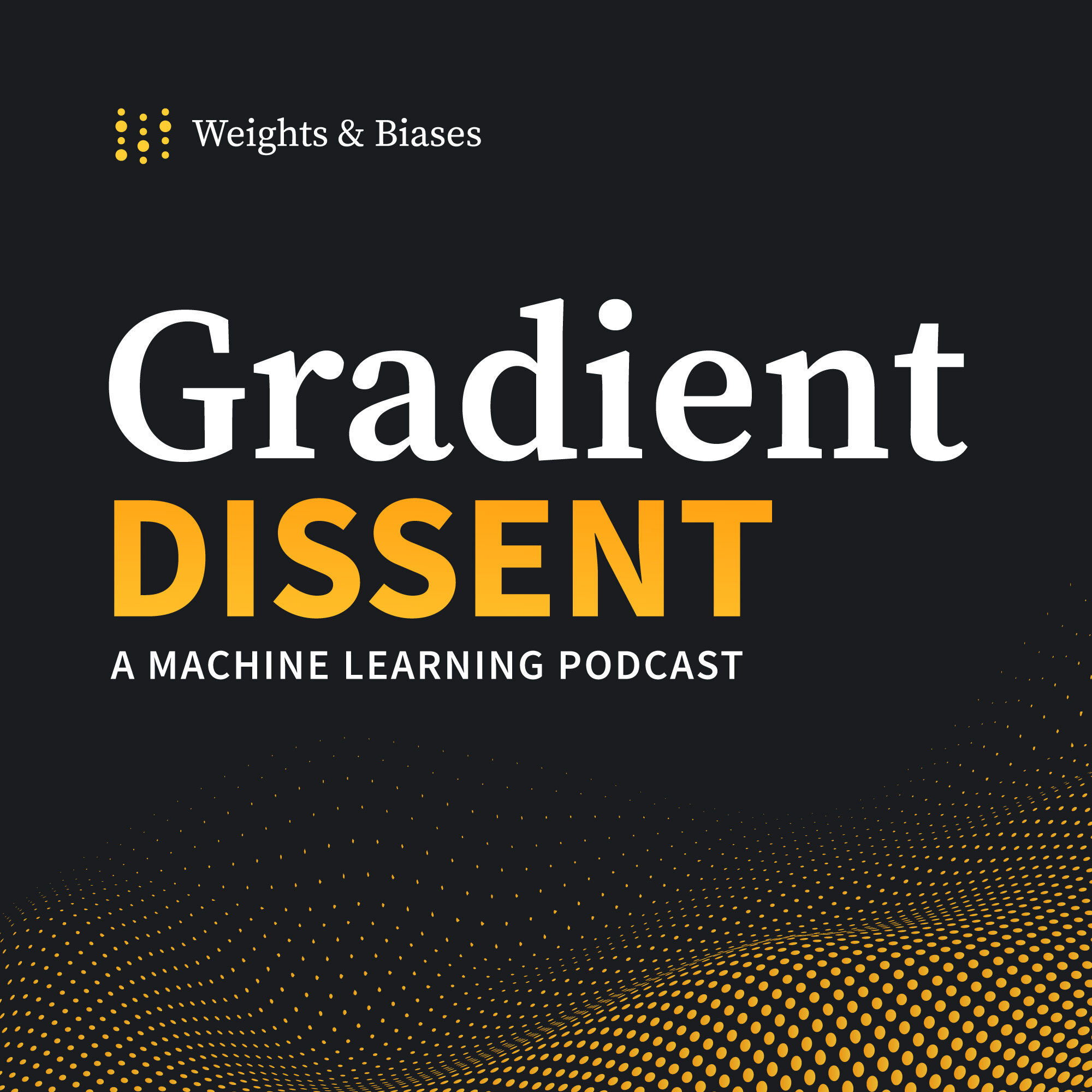
Shownotes Transcript
Anthony Goldbloom is the founder and CEO of Kaggle. In 2011 & 2012, Forbes Magazine named Anthony as one of the 30 under 30 in technology. In 2011, Fast Company featured him as one of the innovative thinkers who are changing the future of business.
He and Lukas discuss the differences in strategies that do well in Kaggle competitions vs academia vs in production. They discuss his 2016 Ted talk through the lens of 2020, frameworks, and languages.
Topics Discussed: 0:00 Sneak Peek 0:20 Introduction 0:45 methods used in kaggle competitions vs mainstream academia 2:30 Feature engineering 3:55 Kaggle Competitions now vs 10 years ago 8:35 Data augmentation strategies 10:06 Overfitting in Kaggle Competitions 12:53 How to not overfit 14:11 Kaggle competitions vs the real world 18:15 Getting into ML through Kaggle 22:03 Other Kaggle products 25:48 Favorite under appreciated kernel or dataset 28:27 Python & R 32:03 Frameworks 35:15 2016 Ted talk though the lens of 2020 37:54 Reinforcement Learning 38:43 What’s the topic in ML that people don’t talk about enough? 42:02 Where are the biggest bottlenecks in deploying ML software?
Check out Kaggle: https://www.kaggle.com/ Follow Anthony on Twitter: https://twitter.com/antgoldbloom Watch his 2016 Ted Talk: https://www.ted.com/talks/anthony_goldbloom_the_jobs_we_ll_lose_to_machines_and_the_ones_we_won_t
Visit our podcasts homepage for transcripts and more episodes! www.wandb.com/podcast
Get our podcast on Soundcloud, Apple, and Spotify! Soundcloud: https://bit.ly/2YnGjIq Apple Podcasts: https://bit.ly/2WdrUvI Spotify: https://bit.ly/2SqtadF
We started Weights and Biases to build tools for Machine Learning practitioners because we care a lot about the impact that Machine Learning can have in the world and we love working in the trenches with the people building these models. One of the most fun things about these building tools has been the conversations with these ML practitioners and learning about the interesting things they’re working on. This process has been so fun that we wanted to open it up to the world in the form of our new podcast called Gradient Dissent. We hope you have as much fun listening to it as we had making it!
Weights and Biases: We’re always free for academics and open source projects. Email [email protected] with any questions or feature suggestions.
- Blog: https://www.wandb.com/articles
- Gallery: See what you can create with W&B - https://app.wandb.ai/gallery
- Join our community of ML practitioners working on interesting problems - https://www.wandb.com/ml-community
Host: Lukas Biewald - https://twitter.com/l2k
Producer: Lavanya Shukla - https://twitter.com/lavanyaai
Editor: Cayla Sharp - http://caylasharp.com/
